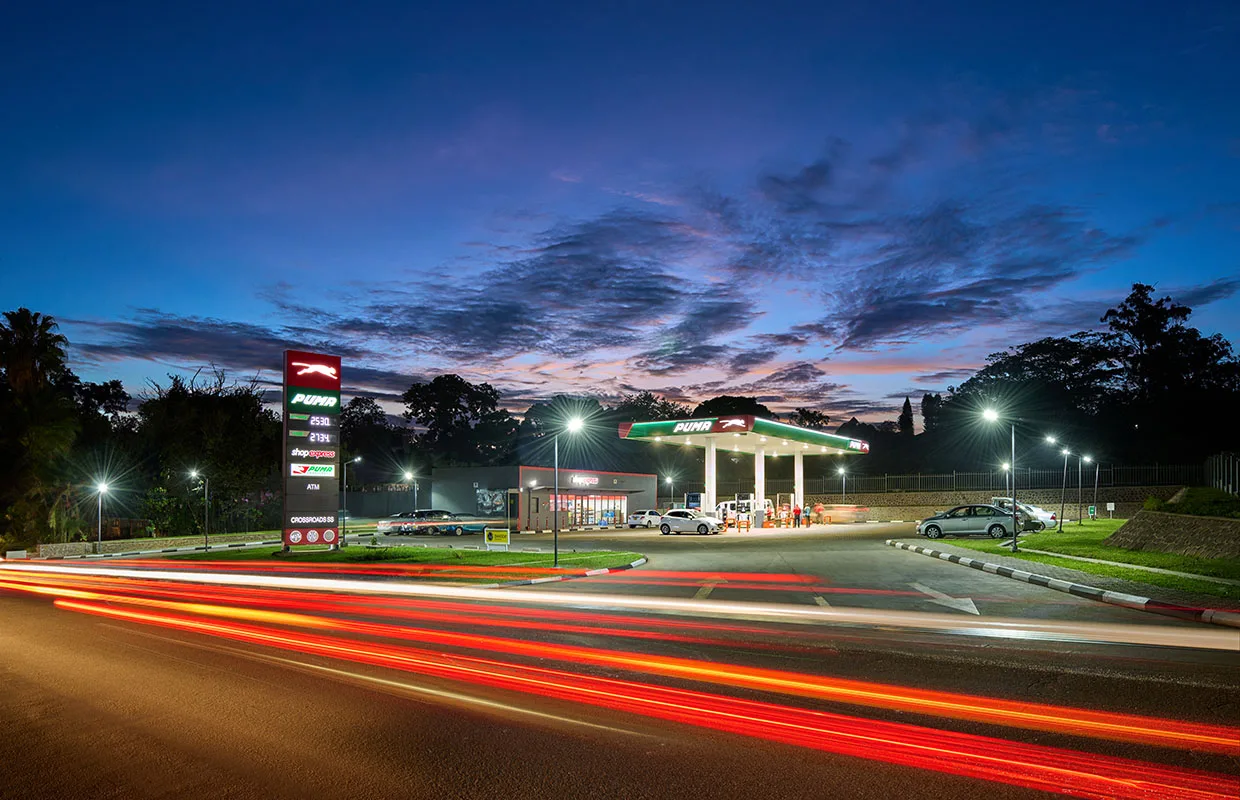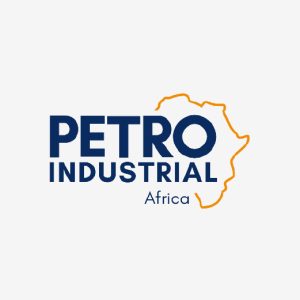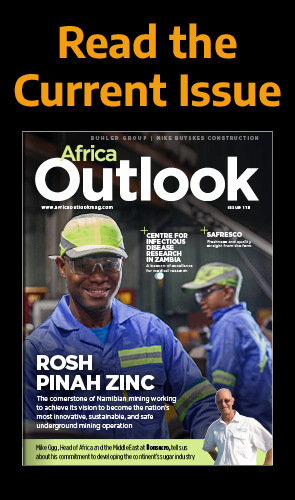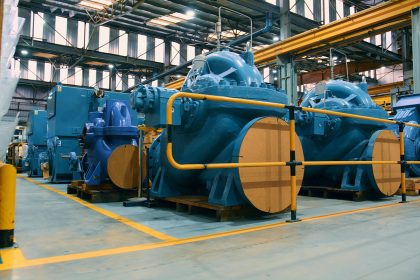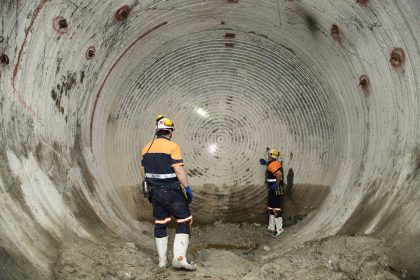ENERGISING COMMUNITIES
As COO – Africa at Puma Energy, Ben Ouattara has had the privilege of witnessing first-hand the dynamic evolution of the continent’s oil and gas industry.
This exciting space presents significant opportunities for investment and expansion thanks to growing energy demands, which have been fuelled by urbanisation, industrialisation, and economic growth.
Africa has the fastest-growing population in the world, with the United Nations (UN) estimating that the continent’s population will reach more than two billion by 2040.
Growing rural populations, meanwhile, are increasingly converging on cities in search of employment, whilst the number of African cities with more than 10 million inhabitants is projected to increase to six by 2035 according to the UN Development Programme, up from just three in the early 2000s.
This population growth, combined with rapid urbanisation in sub-Saharan Africa where Puma Energy largely operates, is leading to a rising demand for energy, especially transportation fuels, which CITAC forecasts will increase by 56 percent by the end of the next decade.
Africa’s vast hydrocarbon reserves, particularly in countries like Nigeria, Angola, and Ghana, also position the continent as a critical player in the global energy market.
“The industry is in a time of change and diversifying its traditional fuel offerings. As Puma Energy, we are committed to the growth, transformation, and sustainability of Africa’s energy sector and to helping enable the countries’ socioeconomic progress,” adds Ouattara, who joined Puma Energy in January 2022.
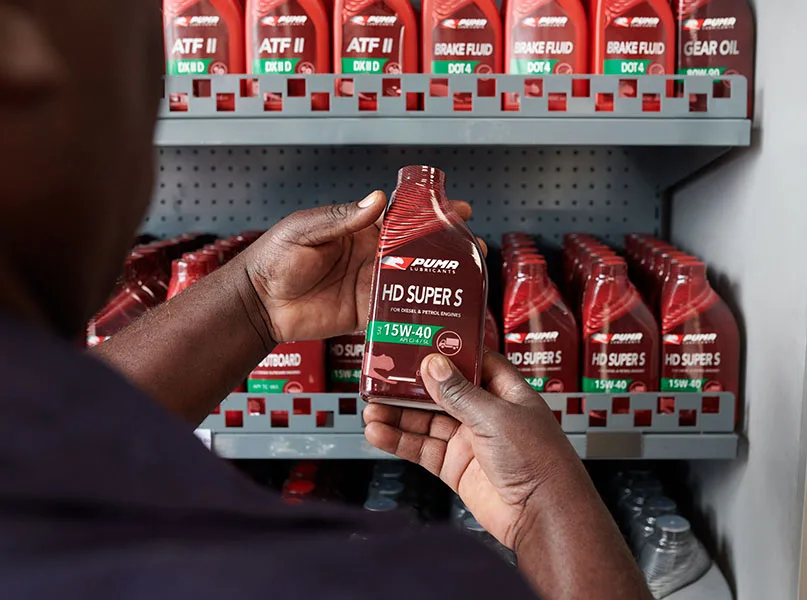
COMPLEX LANDSCAPE
On the other hand, the African oil and gas sector also faces significant challenges, as the demographic shifts resulting from population growth and rapid urbanisation are placing greater strain on an already fragile and underdeveloped energy distribution system.
This fragility has been further exacerbated in recent years by economic uncertainty, the COVID-19 pandemic, and the ongoing conflict in Ukraine, resulting in unprecedented supply chain disruption that has affected the flow and availability of oil products and caused shortages in numerous sub-Saharan African countries.
“Geopolitical tensions and security concerns in some regions are impacting operations and investment,” Ouattara notes.
Key infrastructure such as ports, storage, and pipelines therefore need scaling up in order to improve the supply chain efficiencies of fuels such as gasoline, diesel, jet fuel, and kerosene, meet growing demand, and ensure energy security.
“Infrastructure development through investment in storage, transportation, and distribution infrastructure is crucial to unlocking the continent’s full potential.”
Regulatory frameworks, meanwhile, are another challenge as evolving policies and regulatory environments require adaptability and strategic planning.
These frameworks, along with environmental, social, and governance (ESG) standards, significantly influence oil and gas investments in Africa as they can shape costs, operational and compliance requirements, risk profiles, and the overall attractiveness of projects.
Companies such as Puma Energy are therefore navigating an incredibly complex landscape in which there are various regulations and ESG requirements to adhere to.
As COO – Africa, Ouattara’s focus is on navigating these complexities, driving operational excellence, and positioning the company for long-term success in a dynamic and exciting market.
Despite the challenges, he firmly believes that the continent’s oil and gas industry offers tremendous opportunities for growth, innovation, and collaboration.
“At Puma Energy, we’re committed to energising Africa’s growth, delivering safe, reliable, and affordable downstream energy solutions across the continent.
“Africa’s oil and gas industry is not just an exciting space – it’s a vital component of the continent’s economic future.
“I’m proud to be part of this journey and look forward to contributing to the industry’s continued growth and development,” Ouattara says optimistically.
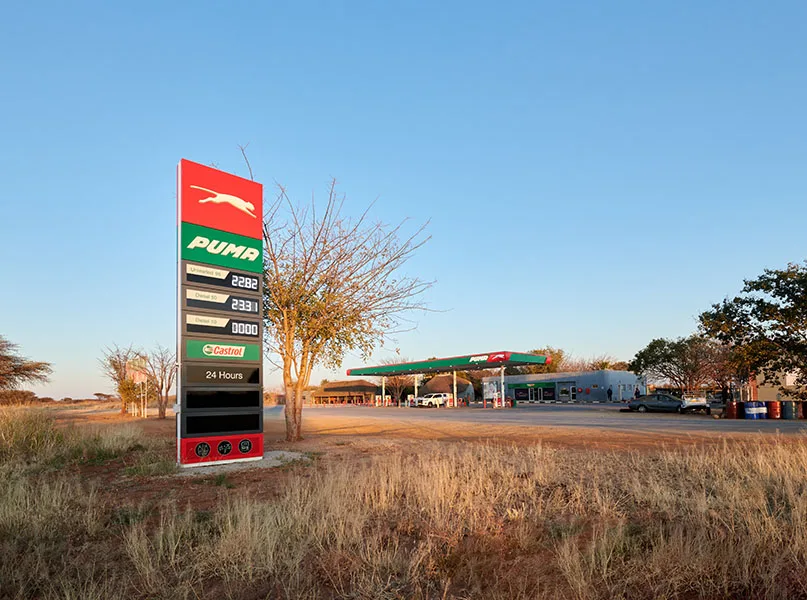
EXTENSIVE RETAIL NETWORK
Ensuring energy access through diversified solutions in emerging markets, Puma Energy’s purpose – Energising Communities – helps to drive growth and prosperity by sustainably serving customer needs in high-potential, emerging countries around the world, primarily across sub-Saharan Africa and Central America.
“At Puma Energy, we strive to deliver quality services, safely and reliably, wherever our customers need them,” outlines Ouattara.
Puma Energy’s business is centred around fuel storage and distribution, retail fuels, commercial fuels and lubricants, aviation fuels, and liquefied petroleum gas (LPG).
The company operates a vast network of storage facilities, including downstream storage terminals that help it offer a seamless supply of refined oil products to customers.
An extensive retail network, meanwhile, offers fuels, lubricants, and other petroleum products at service stations across the continent.
In rural areas, the rural service station concept fosters inclusive economic growth and is a shining example of Puma Energy’s positive impact on underserved local communities, extending vital services and addressing their unique challenges and needs.
“In most African countries, fuel consumption is concentrated in the capital and main cities. Access to fuel for rural populations is therefore a challenge, and fuelling can be very unsafe,” acknowledges Ouattara.
“Our rural service stations allow Puma Energy to bring fuels and lubricants to rural areas both safely and conveniently. The speed to market is also favourable for us to continue growing our footprint and brand.”
Last year, for example, the company rolled out its first rural service station in Zambia to cater for communities in the Chifunabuli District of Luapula Province. An additional two rural stations were rolled out in the towns of Mbala in Northern Province and Samfya in Luapula Province.
This commendable investment has helped unlock economic opportunities through the creation of new jobs, such as service station attendants and maintenance staff to support the supply chain, and improved access to fuel for rural farmers, fishermen, and miners in the districts.
It is part of Puma Energy’s broader rural service station programme in the country, which is aimed at improving access to energy, banking, and healthcare in hard-to-reach areas and reflects the company’s belief in energising communities.
Over the course of three years, the programme will see 25 stations open across Zambia, with plans to expand into other parts of Africa.
“Rural service stations allow for access to a range of fuels, bottled LPG for cleaner and safer cooking, and banking services,” Ouattara explains.
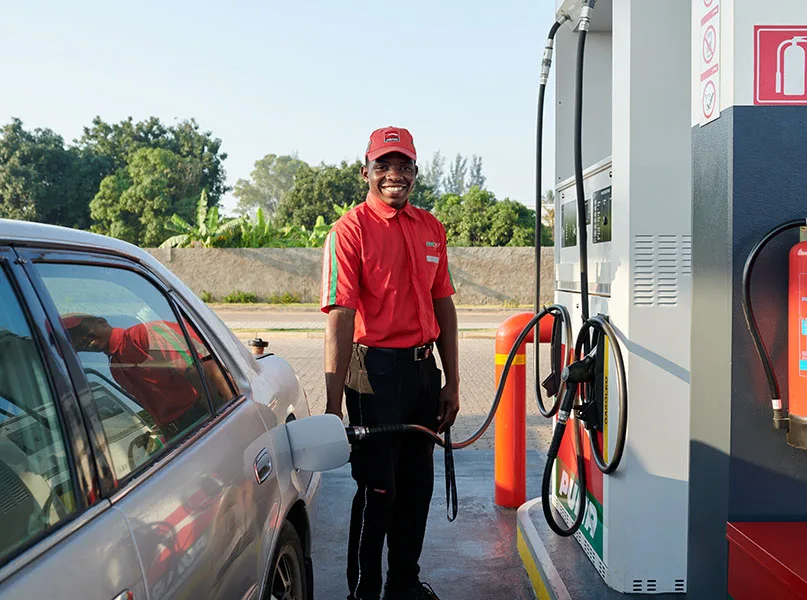
CONVENIENCE FOR CUSTOMERS
Puma Energy’s retail network additionally comprises convenience stores offering refreshments and everyday shopping essentials, such as freshly prepared food to meet everyone’s needs. Coolers are also stacked with chilled beverages and the latest refreshing drinks to quench the thirst of customers, whilst a wide selection of barista-made coffees is also available.
Partnering with Circle K and OK Express, the company’s mini markets bring together a wide variety of delicious, fresh, and quick options all day, every day.
Enhancing and maintaining the quality of this extensive retail network of service stations and convenience stores in core growth markets is one of Puma Energy’s fundamentals.
“Our retail network is a critical component of our downstream business. The goal is to create a seamless, customer-centric retail experience, leveraging technology and data analytics to drive loyalty and growth,” insights Ouattara.
The company plans to achieve this goal through the continued expansion of its retail network with an aggressive growth strategy across Africa, as well as digital transformation by implementing mobile payment solutions, loyalty programmes, and digital signage.
“As we aspire to grow, we plan to expand our retail and commercial offering through convenience stores and quick-service restaurant (QSR) partnerships.
“We will also explore dual brand opportunities, particularly in the QSR space in Africa,” he discloses.
Along with this, it seeks to enhance the customer experience by improving store layouts, product offerings, and staff training in order to deliver exceptional service, as well as introducing additional convenience stores at select locations.
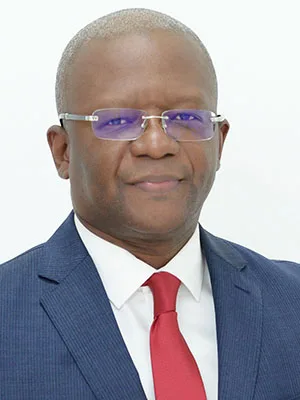
“Our retail network is a critical component of our downstream business. The goal is to create a seamless, customer-centric retail experience, leveraging technology and data analytics to drive loyalty and growth”
Ben Ouattara, COO – Africa, Puma Energy
FOCUS ON LUBRICANTS
Puma Energy likewise provides bespoke energy solutions to businesses, industries, and governments with its commercial fuels and lubricants.
A leading and reliable source for high-quality lubricants that deliver world-class performance, the company specialises in supplying a wide range of custom products tailored to meet the specific needs of various industries, including marine, power generation, mining, cement, and sugar mills.
Its commitment as a lubricants supplier goes beyond just products, however, as Puma Energy focuses on delivering solutions that enhance the efficiency and longevity of machinery.
“Our lubricants business is a key growth area, and we’re committed to delivering high-quality lubricant solutions tailored to African market needs,” Ouattara shares.
“We plan to place a greater focus on lubricant sales in select markets.”
As such, the company is expanding its product range by introducing premium lubricants for industrial, commercial, and retail customers.
Puma Energy is additionally upgrading its manufacturing capacity and production facilities to meet the growing demand for lubricants, enhancing its distribution network, logistics, and storage capabilities, and offering technical services such as expert advice and support to customers.
These investments complement the company’s core fuel business, enabling it to diversify revenue streams, enhance customer loyalty, improve operational efficiency, and reduce environmental impact.
“By integrating retail, renewable energy, and lubricants, we’re positioning Puma Energy for sustainable growth whilst supporting Africa’s economic development and energy transition,” prides Ouattara.
“The industry is in a time of change and diversifying its traditional fuel offerings. as Puma Energy, we are committed to the growth, transformation, and sustainability of Africa’s energy sector and to helping enable the countries’ socioeconomic progress”
Ben Ouattara, COO – Africa, Puma Energy
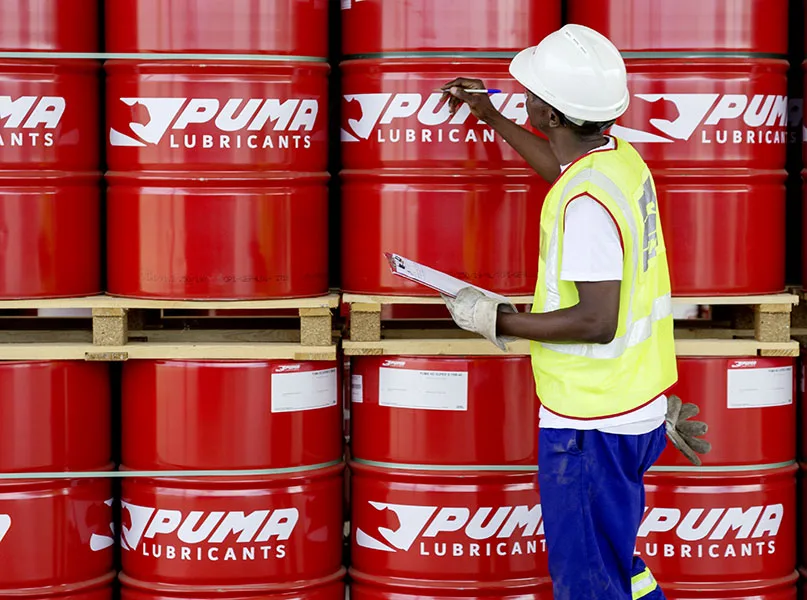
HIGH-GROWTH MARKET OPPORTUNITIES
Also supplying jet fuel and aviation gas to airports and airlines, Puma Energy offers LPG and lubricant products for domestic, commercial, and industrial use.
In an exciting and fast-changing world in need of the right energy solutions, the company focuses on delivering the very best for its customers, from giving retail site visitors a great experience to working closely with industrial businesses to help them optimise their operations.
As Puma Energy operates over 670 service stations and serves more than 90 airports, with close to 30 terminals across 17 African countries, the business is therefore well-positioned to pounce upon opportunities in high-growth markets where it can make a real difference in driving growth and prosperity.
Puma Energy’s operational presence in these high-growth markets is a key strength as many of them are in non-OECD (Organisation for Economic Cooperation and Development) countries, where demand for energy is expected to increase due to factors such as growing economies, rising living standards, and increased electricity usage.
“We will look to grow prudently either on our own or with strategic, like-minded partners,” Ouattara confirms.
On the retail and commercial side, Puma Energy is currently investing to strengthen its market share and customer base through convenience stores and non-fuel retail, particularly QSRs in Africa.
Likewise, it is investing in marketing to increase brand awareness and customer loyalty, as evidenced by the recent launch of its ‘Go Africa!’ campaign across the continent.
‘Go Africa!’ is inspired by the soul and rich diversity of the continent, embodies Puma Energy’s purpose, reflects the company’s determination to be a catalyst for positive change, and reinforces its commitment to delivering quality services safely and reliably wherever customers need them.
The campaign therefore aligns with Puma Energy’s dedication to providing solutions that meet the unique needs of every community, leveraging technology and building partnerships to deliver reliable, affordable energy to all in Africa.
Alongside the above investments, Puma Energy is continuing to expand its business-to-business (B2B) offering, including lower-carbon and renewable energy solutions.
“Our commitment to Africa’s energy growth is unwavering, and we’re excited to continue contributing to the continent’s economic development,” affirms Ouattara.
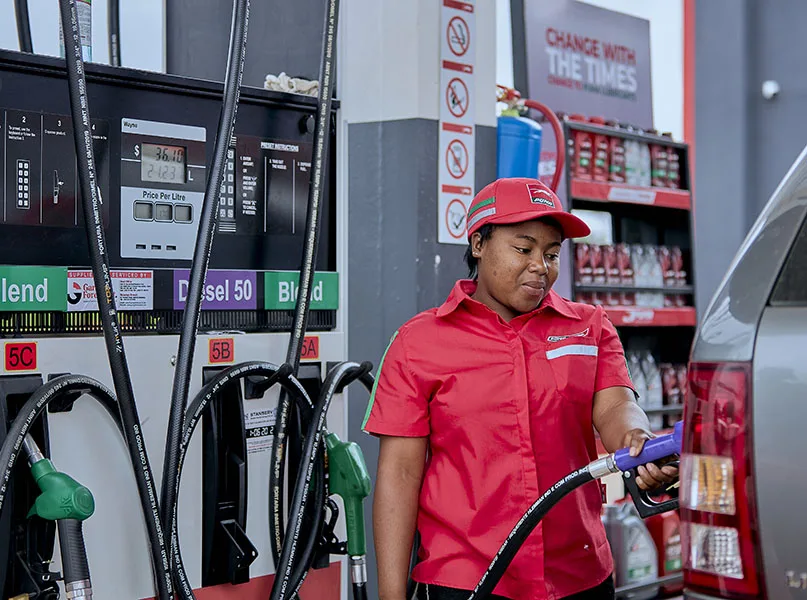
COMPREHENSIVE APPROACH
Puma Energy is driven by a passion for delivering exceptional value, building strong relationships, and contributing to Africa’s energy growth.
A unique blend of strengths positions the company as a global leader in downstream energy, and in the view of Ouattara, there are a number of differentiators that make it stand out in the sector.
First and foremost, Puma Energy’s work to energise communities is driven by a vertically integrated business model, with all stages of the value chain including supply, storage, and distribution controlled by the company.
Its strategically located terminals, import and loading capabilities, and transportation resources facilitate the import of refined oil products and their movement through the supply chain, allowing Puma Energy to reliably source its goods at competitive prices.
The company’s extensive retail network completes the vertically integrated value chain and, combined with its B2B, aviation, and wholesale clients, helps create demand for refined oil products.
“Our comprehensive approach encompasses storage, distribution, retail, and commercial fuels, enabling us to optimise efficiency and provide seamless solutions,” Ouattara elaborates.
Then there’s Puma Energy’s extensive footprint across the continent, which has rapidly expanded since it entered the African market in the 2000s and gives the company an unparalleled understanding of local markets, regulatory environments, and customer needs.
Strategic partnerships are another unique differentiator, as Puma Energy collaborates with reputable companies in the convenience space and local businesses, enabling it to leverage their expertise, share knowledge, and drive growth.



